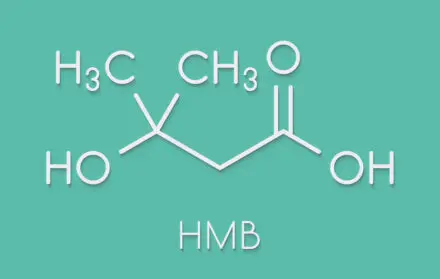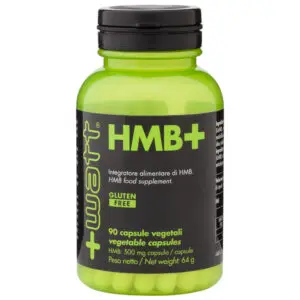HMB: the nutrient for the defense from muscle catabolism
Hydroxy-methyl-butyrate (ß-hydroxy methylbutyrate – HMB): an enigmatic name at a first glance. This is a molecule naturally produced inside the muscles of humans and animals, starting from the branched amino acid (BCAA) leucine.
In 1996 the first HMB study in the sports field was published, showing that taking HMB decreased muscle damage after weight training with consequent gain of lean mass and strength (Nissen et al., J Appl Physiol, 1996).
After that first analysis, many others took place over the years, with results pointing more and more in favour of appreciating HMB’s key role as an anti-catabolite, protecting cells and muscle fibres from microtrauma that inevitably occur during intense workouts.
All these studies lead the International Society of Sports Nutrition (ISSN) to review all the scientific research carried out in recent decades, concluding that HMB increases recovery in both trained and untrained athletes, reducing muscle damage induced by training and favouring muscle hypertrophy. It also concludes that consumption of the recommended dosage (3 grams) of HMB is totally safe for your health (Wilson et al., J Int Soc Sports Nutr, 2013).
Some studies have also observed that the intake of 3 grams of HMB before training reduces and delays muscle soreness (delayed onset muscle soreness – DOMS) that can hit the athlete about 24-48 h after intense training thanks to its anti-catabolic properties (van Someren et al, Int J Sports Nutr Exerc Metab, 2005).
But what is the advantage of taking HMB compared to BCAA?
This is a reasonable question, considering that HMB is already synthesized by our body starting from leucine (one of the three BCAAs). The answer lies in the fact that only a small part (about 5%) of the administered leucine is converted into HMB. With a few calculations, this data suggests that an athlete would ideally need to consume over 600 g of high biological value proteins to obtain the quantity of leucine (60 grams) necessary to produce the typical recommended daily dosage of 3 g of HMB!!! An impossible task!
Therefore, athletes who are attempting to maximize the synthesis of new muscle tissue with training should not consider BCAA and HMB supplements as mutually exclusive. In fact, they provide, respectively, a pro-anabolic stimulus and an anti-catabolic stimulus, acting in synergy.
+Watt Advice
Recommended use: take 3 g of HMB 60’ before training.



